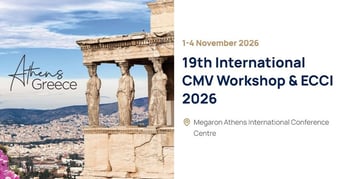- 3.3Impact Factor
- 6.8CiteScore
- 15 daysTime to First Decision
News & Conferences
Latest News & Announcements
Latest Conferences
Propose a Conference Collaboration
Promote and publicise your upcoming conference with MDPI.
All News & Conferences
Partner Conference
19th International CMV Workshop and European Congenital Cytomegalovirus Initiative (ECCI 2026), 1–4 November 2026
1 - 4 November 2026
News & Announcements
19th International CMV Workshop and European Congenital Cytomegalovirus Initiative (ECCI 2026), 1–4 November 2026
6 February 2026
News & Announcements
Acknowledgment to the Reviewers of Pathogens in 2025
5 February 2026
News & Announcements
MDPI INSIGHTS: The CEO's Letter #31 - MDPI 30 Years, 500 Journals, UK Summit, Z-Forum Conference, APE
2 February 2026
News & Announcements
World Neglected Tropical Diseases Day, 30 January 2026
29 January 2026
News & Announcements
World Leprosy Day, 25 January 2026
22 January 2026
News & Announcements
38th Annual Scientific Conference, 26–29 April 2026, Winnipeg, Canada
22 January 2026
Partner Conference
38th Annual Scientific Conference
26 - 29 April 2026
News & Announcements
MDPI’s Newly Launched Journals in December 2025
9 January 2026
News & Announcements
International Day of Epidemic Preparedness, 27 December 2025
25 December 2025
News & Announcements
Article Layout and Template Revised for Future Volumes
11 December 2025
of 19











